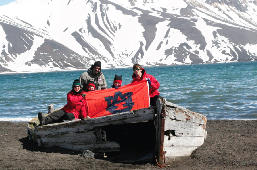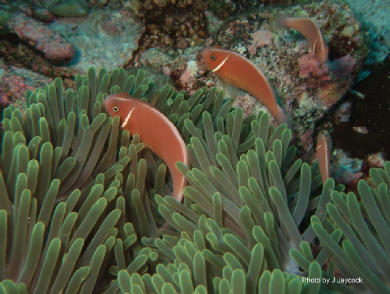Auburn University Marine Biology Program

Information for MARB students and students who wish to participate in the Marine Biology Offerings.
This information is provided as a general guideline. Final answers and/or decisions reside with your advisor or the Program Coordinator as appropriate (not this page or another student). If you are without an advisor contact Dr. Tony Moss, the program coordinator, at tony@auburn.edu.
Also remember that the AU Marine Biology Club has a FaceBook page. Please feel free to ask and post answers there - but remember - your advisor, not other students have the latest and most accurate information.
To get this started and because of the time of year the first installment will deal with the 16 SUMMER HOURS that are part of the curriculum.
There are a variety of choices. Most AU students take courses at Dauphin Island Sea Lab (DISL), but a growing number attend Gulf Coast Research Laboratories (GCRL). Students can also elect to take independent study or research internships for credit - these must be approved by the Program Coordinator, Dr. Tony Moss.
Who has
to approve the summer hours?
The Program Coordinator. You advisor can help but the Coordinator must
ultimately sign off. You will need to schedule an appointment with
Dr. Tony Moss - tony@auburn.edu.
Do I have to take 8 hours each summer?
No, what matters is that the course work is field oriented (at the
coast) and covers at least two field seasons (e.g., summers). Thus one
can take, for example, 10 hours one season and 6 the next.
Where do I find information about which courses
are offered at DISL or GCRL?
Browse to the following sites:
DISL -
http://www.disl.org/
GCRL -
http://www.usm.edu/gcrl/
What is the timeline for taking these courses?
This answer depends on the course. You need to apply for each of the
courses. Some courses are more competitive than others. For internships or
research hours, see below.
For DISL: courses are announced middle December - Applications due middle of
February
For GCRL: courses are announced middle November - Applications Early January
thru May
For both, applications are accepted until classes are filled.
Timelines for other labs are different - you need to find out their calendar. Be proactive! And, stay in touch with the coordinator.
How do I apply and enroll for DISL and GCRL?
You should start by reading the application forms for where you are
interested in going. In general, you apply to DISL or GCRL, at least for
the first summer (many students go elsewhere for their second summer). The
specific program will
tell you into which classes you have been enrolled. At that point you will
work with the AU Program Coordinator to enroll in the courses at AU!
Can I get "shut out" of a course?
Yes but this is the decision of DISL or GCRL. Once they enroll you in
the course you will not "closed" out at Auburn.
Who do I pay?
You will pay AU for tuition because you are enrolled through AU. You
will pay DISL or GCRL for lab fees, room and board. Thus you will end up
paying both institutions.
Can I list alternate choices for DISL and GCRL?
Yes this is a good idea. The personnel at both labs work hard to get
everyone his or her top choice(s).
Can I switch classes once the summer term has
started?
Yes - but be aware that you are responsible for informing the AU Program
Coordinator as soon as possible. You MUST follow up at the end of the
season/summer to make sure everything is recorded properly. This
situation is the biggest cause for grades being reported late or for
causing incorrect billing.
Can I take courses elsewhere and Why are DISL
and GCRL different?
Yes you can take courses elsewhere, but AU has a special arrangement with DISL and GCRL such that your credit hours and your GPA are transferred
back to AU fairly easily. Courses taken elsewhere are usually treated as
transfer credits. As a result, your grade in that course won't be figured into your GPA.
Because of the close relationship students develop with their
instructors in the small-class marine lab and lecture courses, most students
learn very effectively, and so benefit from the transferred grades.
If you take courses elsewhere, you will need to do some digging:
find out all the relevant details - the course name, type, the sort of
work you'll be doing, who's doing the teaching (professor's name is very
useful and his/her affiliation), and provide that information to
the Program Coordinator, Dr. Moss. For a place to look for labs, see the National
Association of Marine Lab's page (http://www.naml.org/)
where they list all the labs in the USA and a few elsewhere.
Can I get independent credit or research hours
for summer credits?
Yes. You can obtain 1-4 credit hours per research endeavor. Please note
most internships will take most of your summer and thus you should plan
your hours between the two years.
If you want to take internship hours for you summer credit you need to do the following:
By email, send program information to the AU Marine Biology Program Coordinator (Tony Moss: tony@auburn.edu). Who is hosting it? What is the time commitment (hours per week for how many weeks?). What will you actually be doing? Who will be your direct, actual supervisor? How will a grade be assessed?
After this you will need to figure out how to fit the credit hours into your schedule.
Can I do international study abroad for the
summer credits?
Yes. This could be a fabulous experience! In such cases, it is often
best to go through the AU International Studies Office. You should
contact them and the Marine Biology Program Coordinator about the course
or experience you are interested in.
Please look back here for updates.
